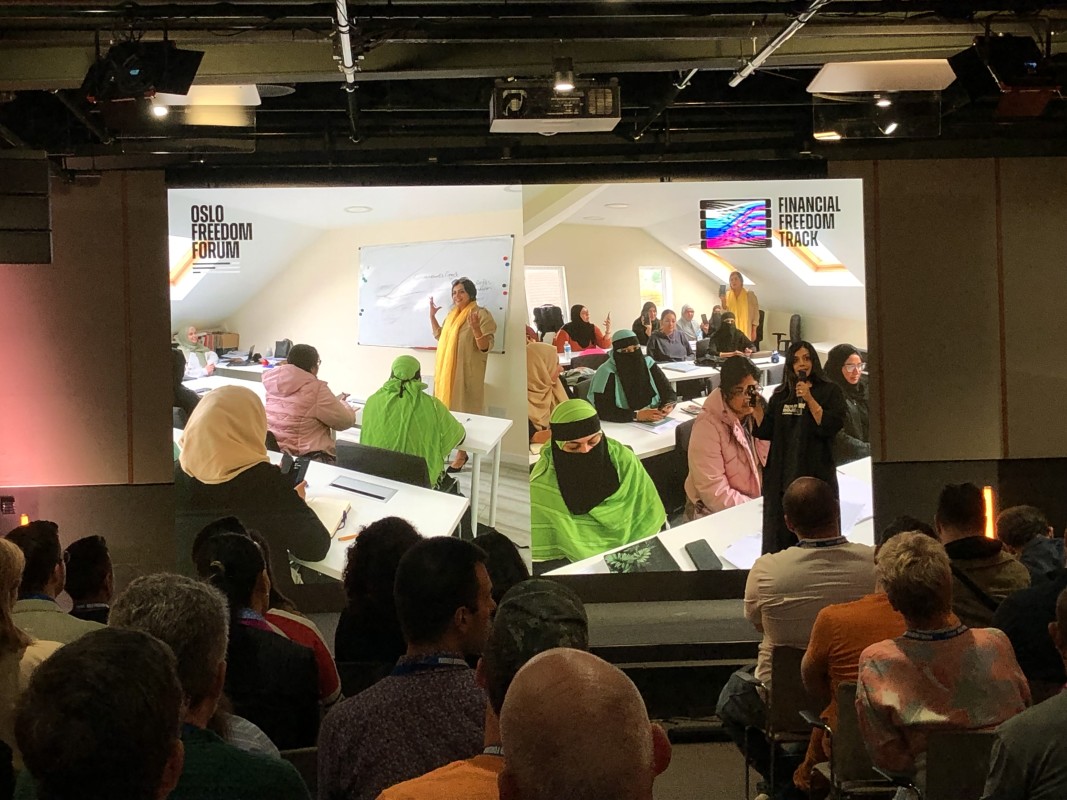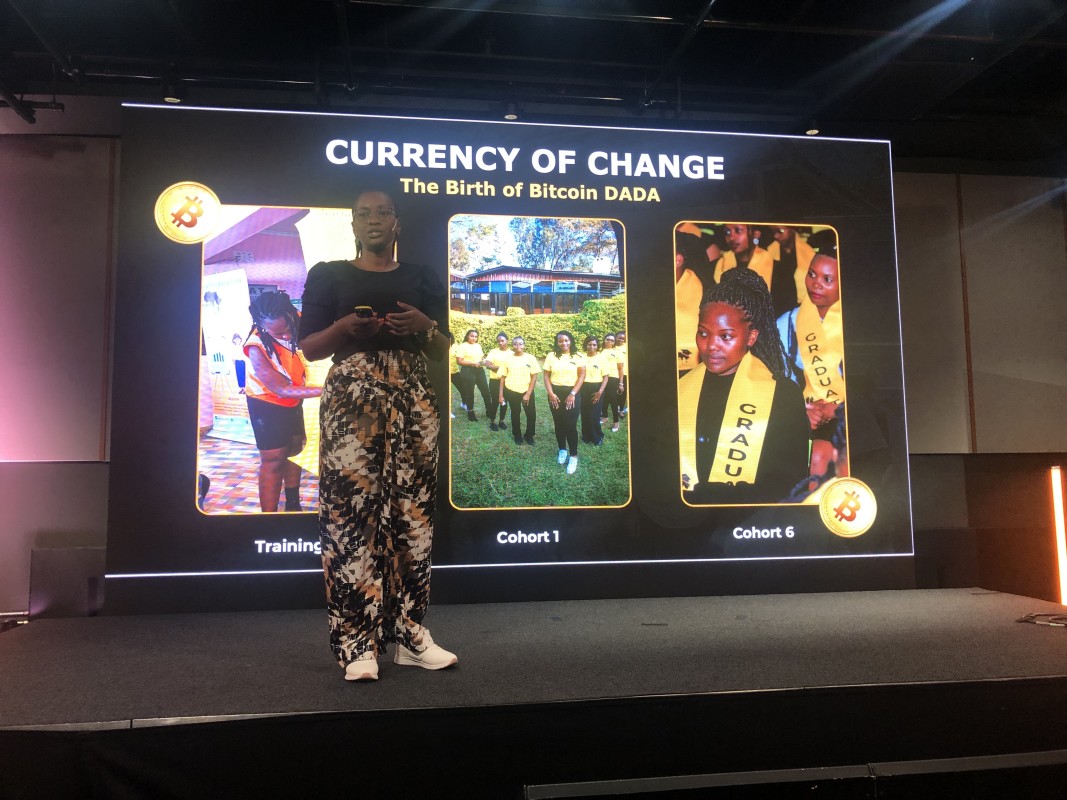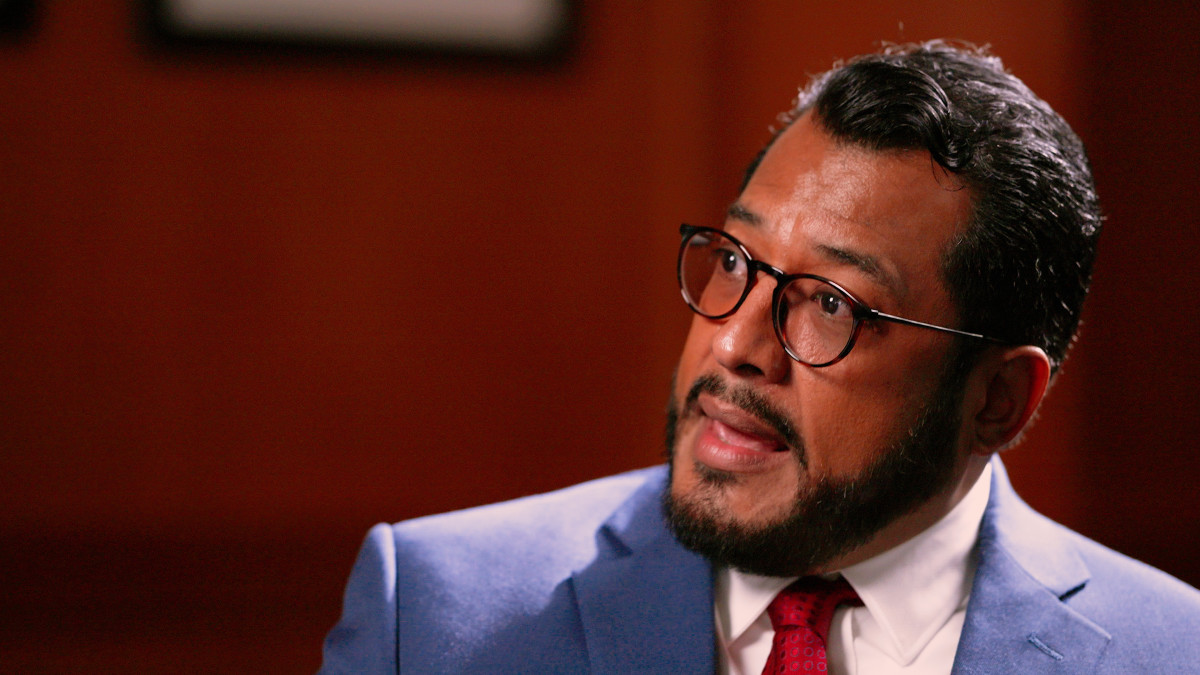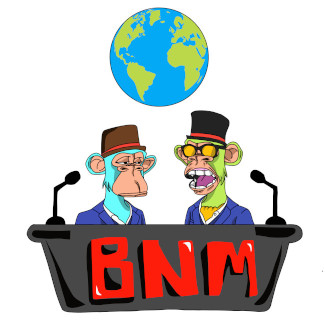Activism
Oslo Freedom Forum Witnesses Global Momentum For Bitcoin And Activism
Published
3 weeks agoon
By
admin
On Wednesday, social-minded Bitcoin proponents from Kenya to Canada to Russia convened on the final day of the 2024 Oslo Freedom Forum as part of the Financial Freedom Track event to offer their insights on how Bitcoin can be a tool for those around the world who need it most.
Alex Gladstein, Chief Strategy Officer for the Human Rights Foundation (HRF), the organization that puts on the Oslo Freedom Forum, kicked off the day by discussing why Bitcoin is essential in a human rights context. He then read two pertinent passages from Lyn Alden’s book Broken Money: Why Our Financial System Is Failing Us And How We Can Make It Better before inviting the author, an esteemed macroeconomic analyst, to the stage.
Alden provided a brief overview of monetary history before making the point that Bitcoin gives anyone anywhere in the world access to a free and open financial system. She also pointed out that Bitcoin, now 15 years old, has matured and has become easier to use and is also quite liquid, aspects of the network and asset that make it better suited for a human rights context than it was in its earlier days.
Hadiya Masieh, founder of the Groundswell Project, an organization that works to foster tolerance and empathy amongst diverse communities, then took the stage to present her talk entitled “How Bitcoin Can Fund Counter-Terrorism.” She highlighted how she’s taught Somali women how to use bitcoin to fundraise for political campaigns for female political candidates in the country.

Noble Nyangoma, CEO of the Bitcoin Innovation Hub, spoke soon after Masieh, discussing the work she does with refugees in Uganda, many of whom are not yet Ugandan citizens and therefore cannot open bank accounts in the country. She stressed that Bitcoin is essential for these refugees.
“With Bitcoin, no one is going to ask you ‘Where is your national ID?’” said Nyangoma.
One of the most moving talks of the day came from Farida Nabourema, a Togolese activist and Executive Director of the African Bitcoin Conference. She shared a harrowing account of how she once needed an emergency surgery in Ghana and almost didn’t receive it because she didn’t have enough money in the local currency on her at the time of the surgery to pay for it.
She did, however, have enough funds in her home country’s currency to make the payment, but the hospital wouldn’t accept it. The point she was making was that Africa is divided financially by the many different currencies on the continent, none of which can be used across borders.
She explained that Bitcoin fixes this, as it helps create a world — especially in Africa — in which the situation she experienced in that Ghanaian hospital could have been avoided.
Before the lunch break, Ben Perrin, better known as BTC Sessions, gave a presentation on how to use bitcoin in a high-fee environment, and Alex Li, a member of the HRF team, announced the 10 winners of of it Bitcoin Development fund grants for software developers who create tools that add to privacy on the Lightning Network, build decentralized communications and provide technological tools to human rights defenders.
In the afternoon, Sparrow Wallet developer Craig Raw detailed a number of practical ways to use Bitcoin more privately, while Lorraine Marcel, founder of Bitcoin DADA, a virtual Bitcoin education platform and community for African women, shared stories of how Bitcoin is catalyzing notable changes in her students and in those her organization serves.
“Before Bitcoin I could not really see a true way of getting financial freedom or independence for me or my sisters back at home,” said Marcel during her presentation.
She went on to share that the organization also uses bitcoin as a fundraising tool to help fund an initiative that provides feminine hygiene products and educational materials to female students in Kibera, one of the biggest urban slums in Africa.

Calle, an anonymous software developer who created the Cashu protocol, an ecash protocol that offers more transactional privacy with Bitcoin, provided an overview of how ecash works and how the privacy it provides can benefit activists.
Toward the middle of the afternoon session, Christian Keroles, Director of Financial Freedom at HRF, interviewed Luthando Ndabambi, Community Leader at Bitcoin Ekasi, a circular Bitcoin economy located in a South African township. Ndamambi told Keroles that before bitcoin, he and many others in his community had no means of saving, which led them to not thinking much about their future.
“I tell people in my township, ‘When you think about Bitcoin, think about saving for your kids,’” said Ndabambi.
Soon after, Peter McCormack, host of the What Bitcoin Did podcast, sat down with Mike Brock, head of TBD at Block, and Anna Chekhovich, CFO at Alexei Navalny’s Anti-Corruption Foundation and HRF Non-Profit Bitcoin Adoption Lead. The three discussed how Bitcoin can help preserving democracy as well as the effects of the crackdown on privacy-focused Bitcoin wallets in the US.
“For us to receive donations, we [have to] provide our donors with high-level security tools for payments,” explained Chekhovich.
“If there is a tiny chance that your personal data is going to be leaked to the government and they will put you [in] jail, of course you will not make a donation. That is why privacy tools are crucial, and at the Anti-Corruption Foundation, we are very concerned about that. We try to do everything we can in order to provide safety to our donors,” she added.
“If we are deprived of these privacy tools we will not be able to accept bitcoin donations, because we cannot put our donors at such a huge risk.”
Dulce Villarreal, CEO and founder of Librería de Satoshi (Library of Satoshi), a Bitcoin hub that provides Bitcoin educational materials and classes as well as financial support for Bitcoin developer students, stated that she’s concerned about the fact that more than 50 million people live under dictatorships in Latin America and that central bank digital currencies (CBDC) will only further enable autocratic leaders on the continent.
Therefore, she’s on a mission to make Bitcoin ubiquitous by helping to train people from around the world to work on and support Bitcoin.
“Our mission is to make Bitcoin technical training accessible in your own language,” said Villarreal. “At Librería de Satoshi, our goal is to foster the next generation of Bitcoin contributors, entrepreneurs, educators.”
The day concluded with a fireside chat with Jack Mallers, founder and CEO of Strike, and Matt Odell, Managing Partner at Ten31 and co-founder of OpenSats. The two discussed the importance of profitable Bitcoin businesses contributing to open-source developers, much like the way that Strike announced it would be donating $100,000 to the OpenCash Association, a non-profit that supports such developers, founded by the aforementioned Calle.
“Through my work with HRF and coming here, there is a duty that I have to make sure Bitcoin is successful, although not maybe in my shareholders’ [or] in my corporation’s immediate interest,” explained Mallers. “That’s part of the game theory that makes the whole project work. And so no matter your role, we’re all on the same team. If Bitcoin is better, we’re all better off for it.”
Strong words to end a conference that featured the voices of so many who have gone above and beyond to ensure that we are all in fact better off because of Bitcoin.
Source link
You may like


Book of Meme sees gains as Pepe Unchained ICO raises $1 million


Coinbase Won’t Support Upcoming AI Token Merger Between Fetch.ai, Ocean Protocol and SingularityNET


BTC Back To $60K Amid ETF Outflows, Top Cryptos Prices Fall


21Shares files spot Solana ETF with SEC


Google Releases Supercharged Version of Flagship AI Model Gemini


Coinbase, MicroStrategy, and Crypto Stocks Record Weekly Upswing
Activism
Bitcoin's Role In Defending Democracy In Nicaragua With Félix Maradiaga
Published
1 week agoon
June 20, 2024By
admin

At the 2024 Bitcoin Policy Summit, Nicaraguan pro-democracy activist Félix Maradiaga shared his insights on the severe challenges facing his country, which is under the autocratic rule of Daniel Ortega.
According to Maradiaga, the Nicaraguan people are losing their freedoms at an alarming rate.
“According to the Freedom in the World report, we have the very unfortunate label of being the country that over the last year has lost the most freedoms,” Maradiaga told Bitcoin Magazine.
“Imagine a country in which you could go to prison for raising the national flag, for tweeting, for receiving a remittance from an international donor or for expressing your opinions on social media,” he added.
“That’s the situation in Nicaragua.”
Maradiaga pointed out that 130 individuals are currently being arbitrarily detained for political reasons and that, over the last three years, more than 1,700 have been incarcerated under inhumane conditions. He was one one of those 1,700.
The oppressive environment has forced nearly 12% of the population into exile, according to Maradiaga.
Using Bitcoin To Combat Financial Repression
Maradiaga is now working to rebuild the capacity of the democratic opposition in Nicaragua from abroad, and his advocacy includes using Bitcoin to circumvent the financial repression employed by the Ortega regime.
After thanking his wife, Berta Valle, as well as Human Rights Foundation Chief Strategy Officer Alex Gladstein, for introducing him to Bitcoin, Maradiaga recounted an example of how the technology has helped pro-democracy freedom fighters on the front lines in Nicaragua.
In 2018, when his team of human rights defenders compiled reports on Nicaragua’s situation, those involved with the process were compensated via the traditional financial rails.
The Ortega regime was able to access those financial records with help from the European Union, the United Nations and the United States Agency for International Development (USAID), which led to the persecution of those involved with the efforts of Maradiaga’s team.
“We learned very early that we couldn’t use the traditional banking system because financial repression for political control is actually one of the areas in which dictators have learned a lot. They’ve become highly sophisticated,” he explained.
To counteract this, Maradiaga and his colleagues turned to Bitcoin.
“Bitcoin is the only tool that is bulletproof to financial repression from dictators,” Maradiaga stated.
The Misuse Of Anti-Money Laundering Regulation
Reflecting on global policy, Maradiaga discussed the broader implications of legislation and regulation on Bitcoin.
He cited the Magnitsky Justice Campaign, which uses sanctions against oppressive regimes, and noted that these regimes retaliate by freezing the bank accounts of freedom fighters, often under the guise of international money laundering regulations endorsed by institutions like the International Monetary Fund (IMF).
He went on to explain that anti-money laundering rules are often used to target the wrong parties.
“We’ve seen 3,400 NGOs shut down using this particular law,” explained Maradiaga.
He argued that the mechanisms developed post-World War II are obsolete and that embracing new technologies like Bitcoin is essential.
Policymakers Must Educate Themselves About Bitcoin
Maradiaga urged policymakers worldwide to educate themselves about Bitcoin.
“Policymakers around the world who are suspicious of Bitcoin must acknowledge the fact that it’s completely understandable to have questions when [they] don’t understand any technology,” he shared. “Once you are educated about this technology, you can really see that this is a tool that I think is way more viable to tackle these challenges more than the traditional monetary [system].”
The Global Fight Against Dictators
Maradiaga also stressed that Nicaragua’s struggle is part of a larger issue.
“Dictators are collaborating among themselves,” he said.
“They are sharing technology. They are supporting themselves through weapons and mechanisms of repression,” he added.
“Those of us who believe in freedom, in human dignity, in human rights, and in free and fair societies, we need to collaborate with each other.”
Maradiaga shared that people can get involved with his efforts at World Liberty Congress.
Source link

Book of Meme sees gains as Pepe Unchained ICO raises $1 million

Coinbase Won’t Support Upcoming AI Token Merger Between Fetch.ai, Ocean Protocol and SingularityNET

BTC Back To $60K Amid ETF Outflows, Top Cryptos Prices Fall

21Shares files spot Solana ETF with SEC

Google Releases Supercharged Version of Flagship AI Model Gemini

Coinbase, MicroStrategy, and Crypto Stocks Record Weekly Upswing

CleanSpark’s acquisition of GRIID reiterates CLSK as a Buy

Treasury and IRS Finalize Broker Rule, Defers DeFi Decision

U.S. Treasury Issues Crypto Tax Regime For 2025, Delays Rules for Non-Custodians

Lido and Rocket Pool tokens tank after SEC sues Consensys

Consensys Responds to SEC Lawsuit Over MetaMask

BREAKING: 21Shares Joins Race To Launch Spot Solana ETF

Supreme Court Decision Overturns Chevron: A Victory for Judicial Authority and Bitcoin

ADA short positions spike; experts double down on Dogecoin, Angry Pepe Fork

Crypto Airdrops To Watch Out For in July

Bitcoin Dropped Below 2017 All-Time-High but Could Sellers be Getting Exhausted? – Blockchain News, Opinion, TV and Jobs

What does the Coinbase Premium Gap Tell us about Investor Activity? – Blockchain News, Opinion, TV and Jobs
BNM DAO Token Airdrop

NFT Sector Keeps Developing – Number of Unique Ethereum NFT Traders Surged 276% in 2022 – Blockchain News, Opinion, TV and Jobs
A String of 200 ‘Sleeping Bitcoins’ From 2010 Worth $4.27 Million Moved on Friday
New Minting Services

Block News Media Live Stream

SEC’s Chairman Gensler Takes Aggressive Stance on Tokens – Blockchain News, Opinion, TV and Jobs

Friends or Enemies? – Blockchain News, Opinion, TV and Jobs

Enjoy frictionless crypto purchases with Apple Pay and Google Pay | by Jim | @blockchain | Jun, 2022

Block News Media Live Stream

How Web3 can prevent Hollywood strikes

Block News Media Live Stream

XRP Explodes With 1,300% Surge In Trading Volume As crypto Exchanges Jump On Board

Block News Media Live Stream
Trending

 Altcoins2 years ago
Altcoins2 years agoBitcoin Dropped Below 2017 All-Time-High but Could Sellers be Getting Exhausted? – Blockchain News, Opinion, TV and Jobs

 Binance2 years ago
Binance2 years agoWhat does the Coinbase Premium Gap Tell us about Investor Activity? – Blockchain News, Opinion, TV and Jobs
- Uncategorized2 years ago
BNM DAO Token Airdrop

 BTC1 year ago
BTC1 year agoNFT Sector Keeps Developing – Number of Unique Ethereum NFT Traders Surged 276% in 2022 – Blockchain News, Opinion, TV and Jobs

 Bitcoin miners2 years ago
Bitcoin miners2 years agoA String of 200 ‘Sleeping Bitcoins’ From 2010 Worth $4.27 Million Moved on Friday
- Uncategorized3 years ago
New Minting Services

 Video2 years ago
Video2 years agoBlock News Media Live Stream

 Bitcoin1 year ago
Bitcoin1 year agoSEC’s Chairman Gensler Takes Aggressive Stance on Tokens – Blockchain News, Opinion, TV and Jobs

